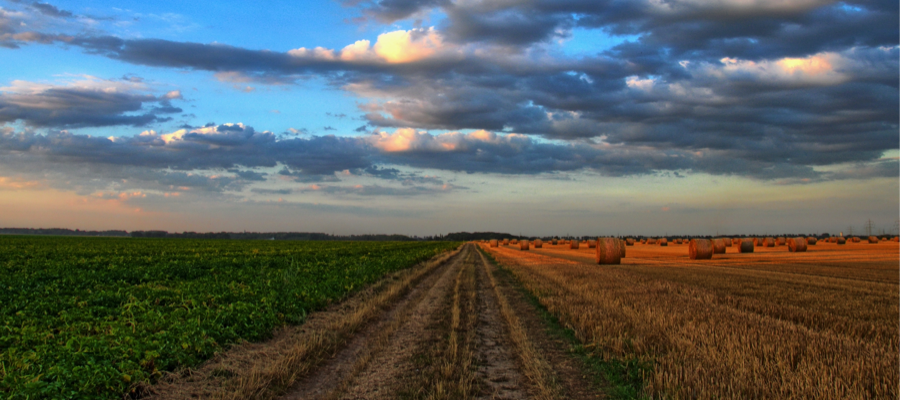The report showcases more than $320 billion in investments that focus on sustainable food and agriculture, with $47.5 billion of that now explicitly targeting “regenerative agriculture”
Chicago, IL (July 10, 2019) – A team of researchers from Delta Institute, Croatan Institute, and the Organic Agriculture Revitalization Strategy (OARS) released a major new report for investors, agriculture practitioners, entrepreneurs, and philanthropists on financing regenerative agriculture. The report highlights 127 investments totaling $321.1 billion that explicitly integrate sustainable food and agriculture in their investment processes, with 70 of those strategies with combined assets of $47.5 billion including regenerative agricultural criteria in their investment strategy as well.
The new report, Soil Wealth: Investing in Regenerative Agriculture across Asset Classes, is the most comprehensive look to date at the US landscape of investment opportunities in regenerative agriculture — one of the leading trends in food and agriculture today. Regenerative agriculture refers to a diverse array of farming systems that enhance the biodiversity of farming landscapes, improve soil health and the water cycle, and strengthen the resilience of rural agricultural economies.
The report provides an in-depth analysis not only of investments in farmland, but also of investment opportunities across asset classes that support regenerative agricultural value chains and food systems, including banking and cash equivalents, fixed-income investing in both public and private debt markets, public equities, and the private equity and venture capital market. Across these asset classes, it identifies 67 distinct investment mechanisms, instruments, and approaches for further developing regenerative agriculture capital opportunities. The report concludes with a series of recommendations for investors and stakeholders to build greater “soil wealth” — the benefits associated with improving soil health and increasing rural wealth through regenerative agriculture.
Soil Wealth stems from a major, three-year project on innovative mechanisms for financing regenerative agriculture funded by a Conservation Innovation Grant from the US Department of Agriculture’s Natural Resources Conservation Service (NRCS).
“For years investors have claimed that there are few viable options for investing in more regenerative food systems. This report has documented existing strategies across asset classes, and the steps to take to unleash the many forms of capital needed to transform our food systems into ones that build soil health and community wealth,” said Dr. David LeZaks, Regenerative Food Systems Lead at Delta Institute, director of the NRCS Conservation Innovation Grant that funded the project, and co-author of the report.
Other key components of the report include:
- Identification of financial mechanisms and approaches across asset classes, some of which are commonly used in traditional conservation or agricultural finance that could be utilized to support regenerative agriculture outcomes;
- Quantitative analysis of the current state of investment funds across asset classes that are currently financing sustainable food and agriculture or regenerative agriculture; and
- A roadmap for the development of new investment opportunities in the capital markets incorporating regenerative agriculture criteria that could accelerate the transition of conventional agriculture to regenerative farmland.
The increasing need to address climate change has generated significant investment interest in regenerative agriculture. Implementing climate-friendly, regenerative agricultural practices could mitigate nearly 170 GtCO2e, while generating a nearly $10 trillion net financial return for investors and producers. To realize this climate mitigation potential, more than $700 billion in estimated net capital expenditure over the next 30 years will be required. Regenerative agriculture outcomes also align with UN Sustainable Development Goals, which sustainable, responsible, and impact investors are increasingly integrating into investment decision-making frameworks.
Dr. Joshua Humphreys, President and Senior Fellow at Croatan Institute, Senior Strategist of OARS, and lead author of the report noted, “Amid what is increasingly looking like a new farm crisis, this important research advances our understanding of how to finance the transition to much more diversified, regenerative farming systems that build soil health, sequester carbon, increase biodiversity, and foster greater resilience on farms and across rural communities.”
For more information please visit www.soilwealth.org.
###
Delta Institute is a Chicago-based nonprofit that works with communities throughout the Midwest to solve environmental challenges. We envision a region in which all communities and landscapes thrive through an integrated approach to environmental, economic, and social challenges. Working with our partners, we identify opportunities for environmental solutions and design, test, and share solutions that yield benefits for communities. For more information:www.delta-institute.org.
Croatan Institute is an independent, nonprofit research institute whose mission is to harness the power of investment for social good and ecological resilience. Based in the Research Triangle of North Carolina with an extended team of affiliates in Boston, New York, the Florida Gulf Coast, and Geneva, the Institute has rapidly established a reputation for rigorous, cutting-edge research and actionable analysis to support strategic decision-making by organizations and practitioners in the field. For more information: www.croataninstitute.org.
Organic Agriculture Revitalization Strategy (OARS) is an initiative that seeks to take advantage of growing consumer and investor interest in organic food and agriculture – now nearly a $50 billion mainstream market – and use it as a strategy for revitalizing rural communities and supporting regional economic development. Developed and coordinated by Croatan Institute with initial support from Organic Valley’s Farmers Advocating for Organics program and a growing group of partners, including Delta Institute, OARS aims to identify business and investment opportunities in regional value chains and to mobilize capital to help build community health and wealth. For more information: www.OARSproject.org.
—
David LeZaks of the Delta Institute and Joshua Humphries of the Croatan Institute will discuss these findings and more in detail during a featured session at the Regenerative Food Systems Investment Forum. Learn more here.
